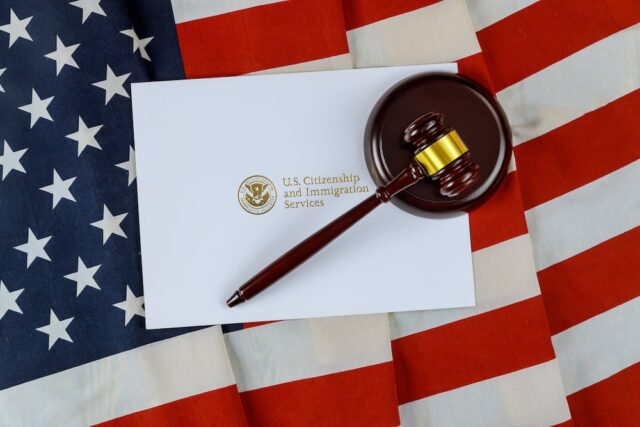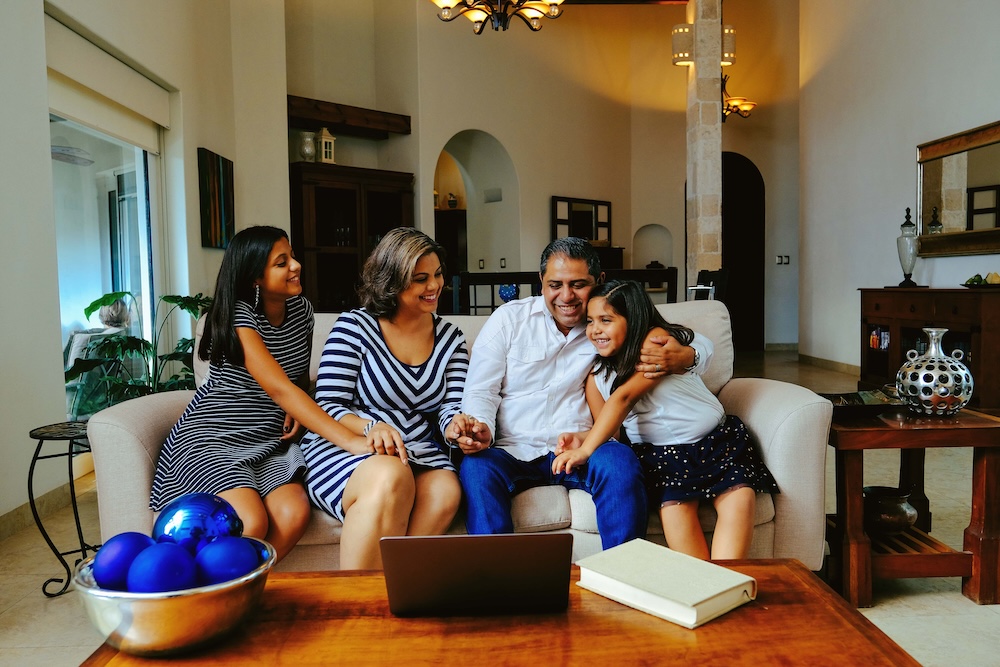If you or your spouse are seeking lawful permanent residence in the United States through marriage, understanding your options is crucial. At Monica Saran-Nace, P.C., we help couples in Queens and throughout New York move through the marriage visa process. Whether you’re recently married or planning a wedding with a foreign national fiancé or spouse, knowing what to expect is paramount. Contact a knowledgeable and dedicated Queens family immigration lawyer to learn more about the marriage visa process and how we can guide you through it.
What is a Marriage Visa?
A marriage visa is a pathway that allows a U.S. citizen or lawful permanent resident (green card holder) to sponsor their foreign-born spouse for immigration to the United States. The technical name for this visa depends on whether the spouse is inside or outside the country.
If the spouse is already in the United States and entered legally, the process typically involves applying for an adjustment of status. This means that after filing the appropriate forms, the foreign national can remain in the U.S. while the application is processed. The relevant visa category in this case is the Immediate Relative (IR-1) visa for spouses of U.S. citizens, or in some situations, the F2A category for spouses of lawful permanent residents.
If the spouse is currently outside the U.S., then they will apply through consular processing. This process involves petitioning through the U.S. Citizenship and Immigration Services (USCIS) and attending an interview at a U.S. embassy or consulate abroad. The IR-1 (for marriages over two years) or CR-1 (Conditional Resident) visa (for marriages under two years) are commonly used in these cases.
It’s important to distinguish between the K-1 fiancé visa, which allows an engaged partner to enter the U.S. to get married within 90 days, and the marriage-based immigrant visa. While related, they serve different purposes and involve different timelines and requirements.
Do I Qualify for a Marriage Visa?
Eligibility for a marriage-based visa depends on several factors, including the legal validity of your marriage, your immigration status, and the background of the foreign national spouse. The primary criteria are as follows:
- Legal Marriage: You must be legally married. This means your marriage must be officially recognized in the place where it was performed. Civil unions, informal relationships, or relationships that are not legally recognized do not qualify.
- Petitioner’s Status: The U.S. citizen or green card holder must be able to prove their status with documentation such as a U.S. passport, birth certificate, naturalization certificate, or green card.
- Proof of Bona Fide Marriage: Immigration authorities will scrutinize the relationship to confirm that the marriage is genuine and not solely for immigration benefits. Evidence might include joint bank accounts, lease agreements, wedding photos, communication records, affidavits from friends and family, or birth certificates of children (if any).
- No Legal Barriers: If either spouse was previously married, there must be legal proof of divorce, annulment, or death of the former spouse. Bigamy and polygamy are not allowed under U.S. immigration law.
- Financial Requirements: The petitioner must meet certain income thresholds under the Federal Poverty Guidelines to sponsor their spouse. If the petitioner does not earn enough, a joint sponsor may be used.
- Admissibility of the Foreign Spouse: The foreign spouse must not be inadmissible under U.S. immigration law. Common grounds for inadmissibility include prior immigration violations, certain criminal convictions, or health-related issues. In some cases, waivers may be available.
How Do I Get a Marriage Visa?
The process for obtaining a marriage visa involves several legal and procedural steps, which is why you should always proceed only with a skilled immigration lawyer in your corner. The specific pathway depends on the current location of the foreign spouse.
If the Spouse is Inside the U.S. (Adjustment of Status)
- File Form I-130 (Petition for Alien Relative): This form is submitted by the U.S. citizen or green card holder to establish the relationship.
- File Form I-485 (Application to Register Permanent Residence or Adjust Status): This allows the foreign spouse to apply for a green card while remaining in the U.S. These two forms can often be filed concurrently if the sponsor is a U.S. citizen.
- Submit Supporting Documents: These include identity documents, marriage certificate, evidence of the bona fide nature of the marriage, Affidavit of Support (Form I-864), and more.
- Attend a Biometrics Appointment: The applicant will be scheduled to provide fingerprints, a photograph, and a signature for background checks.
- USCIS Interview: Both spouses will attend an interview with a USCIS officer. Be prepared to answer questions about your relationship, daily life, and future plans.
- Receive a Decision: If approved, the foreign spouse will receive their green card. If the marriage is less than two years old, a conditional green card valid for two years is issued.
If the Spouse is Outside the U.S. (Consular Processing):
- File Form I-130: This step is the same as for spouses inside the U.S.
- Wait for Approval and Forwarding to the National Visa Center (NVC): Once USCIS approves the petition, it’s sent to the NVC, which begins the visa application process.
- Submit Visa Application (Form DS-260): This is completed online, followed by submitting civil documents and the Affidavit of Support.
- Attend a Medical Examination: The foreign spouse must be examined by a panel physician authorized by the U.S. embassy or consulate.
- Attend the Visa Interview: The foreign spouse will be interviewed at a U.S. consulate. They should bring all required documents and be prepared to answer questions about the marriage.
- Visa Approval and Entry into the U.S.: If approved, the spouse will receive a visa and can travel to the U.S. They will receive a green card by mail after entry.
- Conditional Residence: If your marriage is less than two years old at the time of green card issuance, the foreign spouse will receive a conditional green card, valid for two years. To remove the conditions, both spouses must jointly file Form I-751 during the 90-day window before the card expires, showing that the marriage is still genuine.
Contact an Immigration Attorney in Queens, NY
Immigration law is complex, and each case is unique. Mistakes or delays can result in denials, requests for evidence, or even long-term immigration consequences. At Monica Saran-Nace, P.C., we have helped countless families in Queens successfully obtain marriage-based visas. Our marriage visa lawyer will guide you through every form, deadline, and requirement, providing honest advice and personalized representation. To discuss your case with an experienced Queens marriage visa lawyer, contact our office today. Let us help bring your loved one home.

